Mozart's The Magic Flute: Maryland Opera Studio
Mozart's The Magic Flute

Wolfgang Amadeus Mozart, composer
Emanuel Schikaneder, librettist
Craig Kier and Jonathan King, conductors
Amanda Consol, director
Event Attributes
Presented By
For more information regarding accessible accommodations, please click here.
Join us in person at The Clarice! Please note that this event will not be livestreamed.
In Die Zauberflöte (The Magic Flute), Mozart’s miraculous blend of the human and the supernatural, comedy and romance, draws us into a world where a prince, Tamino, and a princess, Pamina, triumph over every obstacle in their search for wisdom and enlightenment and are finally united in love. With an enduring love story at its heart, plus complex villains and an unforgettable comic sidekick in Papageno, The Magic Flute weaves an enchanting tale from start to finish. Sung in German with English dialogue and supertitles.
Pared down to simplified costumes and minimal production, the fall opera is the art form at its most elemental: the singer, the story and the music take center stage. In addition to the MOS singers, this performance features undergraduate students from UMD Choral Activities and the work of M.F.A. design students from the School of Theatre, Dance, and Performance Studies.
Opera Resonates:
Join us before Sunday's opera for a special Opera Resonates talk that provides an inside look into this beloved masterpiece on Sunday, November 21 at 1:30 p.m. in the Kay Theatre.
About the Maryland Opera Studio:
Under the direction of Craig Kier, the Maryland Opera Studio is dedicated to the future of opera. Preparing the next generation of great singers and offering performances ranging from classic repertoire to provocative new works, it is building contemporary audiences for opera and advancing the art that sustains them.
Concessions:
The Clarice lobby concession bar Encore will not be open for food and beverage sales during this event.
Health & Safety:
There may be COVID-19 safety policies in place, such as mask requirements, when you attend this event. Please see The Clarice's health and safety page for the most up-to-date information about attendance.
PROGRAM MENU: ARTISTS • IN LOVING MEMORY • SYNOPSIS • DIRECTOR'S NOTE • ABOUT THE ARTISTS • PRODUCTION CREDITS
ARTISTS
Clare Lillig (Nov 17 & 19)
Francesca Napolitano (Nov 18 & 21)
Amanda Densmoor (Nov 18 & 21)
Morgan Paige (Nov 17 & 19)
Rhiannon Vaughn
Connor Locke
Jessica Harika
Casey Germain
Michael Butler
Kira Neary
Henrique Carvalho
Lawrence Barasa
Brynn Farlow
Matré Grant
Inayat Jain
Tara Kitchelt
Jacob Lincoln
Helen Mann
Victoria McGrath
Aleea Powell
Colton Smith
Joel Zinkievich
Craig Kier (Nov 17, 19 & 21)
Amanda Consol
Jonathan King
Amy Nicole Broadbent
Justina Lee
Erica Guo
Christina Kouni Smith
Taylor Verrett
Devin Kinch
Susan Chiang
Erin Ridge
Erin Taylor
Jonathan Lyness
Chad Slater
Anthony Manzo
TJ Wible
IN LOVING MEMORY

Carmen Balthrop 1948–2021
UMD Professor of Voice and Opera 1980–2021
Our Pamina has left us. In this dark season of dark theaters, our Carmen Balthrop passed away and we have felt our loss achingly. The longest serving member of our Voice and Opera Division, born and raised only a few miles from this theater, embodied the spirit of her Muse, and nurtured the dreams of students for decades. Her absence is palpable, her contributions a vibrant legacy. The Maryland Opera Studio returns to the light with these performances of Die Zauberflöte, The Magic Flute, and offers them in dedication and tribute to one who glowed with light, our Carmen Balthrop, our Pamina.
Carmen fell in love with opera as a child, listening to radio broadcasts with her father. It was a love that grew to a life’s calling, manifesting itself in an international career with a bevy of leading operatic roles. Fate decreed one of her portrayals would be Mozart’s iconic Pamina. As a young woman of color, her path to a career in opera was not an easy one. She, like her onstage persona, faced her own trials. But she wisely exercised fluidity in her response to prevailing prejudice, forged an indomitable will that burned in her soul, and through it carved her own magic. With successes in theaters and on stages in far flung countries secured, her Muse led her home to her alma mater, the University of Maryland. It was here she chose to teach and share her passion for opera.
When the curtain rises before you, we celebrate the life of our mentor, our colleague, our sister, our Pamina. May the glorious music of Mozart you share with us adorn her path in the eternal light through infinite Widsom’s portal.
— Gran Wilson, Professor and Coordinator of the Voice and Opera Division
SYNOPSIS
Act I
Tamino, a prince, is pursued by a monster. The Three Ladies, who serve the Queen of the Night, come to his rescue and kill the monster. They stand over the unconscious Tamino, discussing which of them should guard the prince and which should go and tell the queen, finally deciding that all three of them will go. Tamino awakes as the bird catcher Papageno arrives and introduces himself to the prince, saying that he was the one to slay the monster. The Ladies return and punish Papageno’s lie by placing a padlock on his mouth. They give Tamino a portrait of the Queen’s daughter Pamina, who, they tell him, is being held by the evil Sarastro. He instantly falls in love with Pamina’s portrait. The Queen of the Night appears and charges Tamino with rescuing her daughter. The Ladies give Tamino and Papageno magic instruments to protect them on their journey. The prince is given a flute while the bird catcher receives a set of bells. Joining them are three Spirits who guide their way.
In a room in Sarastro’s palace, his slave Monostatos pursues Pamina. Papageno, sent ahead by Tamino, enters and the slave and the bird catcher frighten each other away. Papageno soon returns however and tells Pamina that her mother has sent Tamino to rescue her and that he is in love with her. She is overjoyed to hear the news and, upon learning of Papageno’s desire to find a wife, the two sing of their hopeful love.
The Spirits guide Tamino to Sarastro’s temple, telling him that if he is steadfast, patient and silent, he will defeat Sarastro. Tamino is denied entrance at two of the three temple doors. At the third door, a high priest appears and tells Tamino that it is the Queen, not Sarastro, who is evil. Assured that Pamina is alive, Tamino plays his flute to summon Papageno. As wild animals are charmed by its sounds, he hears Papageno’s pipe in response and runs toward the sound. While trying to escape, Papageno and Pamina are captured by Monostatos. But Papageno plays his magic bells and Monostatos is left helpless. Sarastro enters to great fanfare. Papageno trembles in fear but Pamina tells him that they must speak the truth. She tells Sarastro that she was trying to escape because of Monostatos’s unwanted advances. Sarastro says that he cannot return her to her mother but promises her eventual freedom after she has learned the ways of virtue. He punishes Monostatos, and orders Pamina and Tamino to be veiled and led into the temple for purification.
Act II
Sarastro tells the priests that Tamino will undergo the initiation rites and that Pamina and Tamino will be married. Sarastro separates the couple, saying that they must remain apart while Tamino undergoes the dangerous trials.
The Priest tells Tamino that he can still turn back, but Tamino says that he is determined to do anything necessary to win Pamina. Papageno at first refuses to undergo the trials, but when the Priest tells him that, if he does, he'll be able to meet Papagena, he agrees. Tamino and Papageno are told that to pass the test they should not trust women and that they must not speak to them. The Three Ladies appear asking what they are doing there saying that the Queen is on her way. Papageno is scared but Tamino tells him to be quiet and refuses to speak to them.
Pamina is asleep. Monostatos approaches her, full of lust. The Queen of the Night arrives and scares him away. She gives Pamina a dagger and tells her she must kill Sarastro. After she leaves, Monostatos returns and threatens to reveal the plot. Sarastro enters and drives him away and comforts Pamina.
Tamino and Papageno are still in the midst of their trial. Papageno is tempted by an old woman who offers him water. She disappears when the Spirits arrive to bring them actual refreshments and guide Tamino through the rest of the trials. Pamina enters and tries to speak with Tamino. When he only responds in silence she believes that he no longer loves her and she leaves in despair.
Papageno enters and plays his bells, singing that all he wants is a wife. The old woman reappears and tells him that if he doesn’t marry her he will remain alone forever. After Papageno reluctantly agrees, she magically becomes the young and beautiful Papagena. But before he can embrace her, she disappears again.
The Spirits find Pamina attempting to commit suicide with her mother’s dagger, thinking that Tamino has abandoned her. They take the dagger from her and assure Pamina that she will see Tamino soon.
Two men sing of the triumph of the brave. Tamino says that he is ready to be tested. When he hears Pamina’s call, the men assure Tamino that the test of silence is over. Pamina and Tamino rush toward each other and she shares loving words. United, they pass through the final two trials unscathed.
Papageno, in despair at his loss of Papagena, attempts to commit suicide. The Spirits arrive and tell him he should play his magic bells to call her. Once he does, she instantly appears and the two sing a stammering duet of their wedded bliss soon to come.
Monostatos appears with the Queen and her Ladies, as they plot to destroy the world, but Sarastro appears with Tamino and Pamina at his side. The young lovers are united and everyone gives thanks to the gods.
— Opera Philadelphia
DIRECTOR'S NOTE
What a thrill it has been to be back in the rehearsal room preparing our return to the Kay Theatre with Mozart and his beloved Magic Flute. As with many things in 2021, even an opera as revered as this well-known work is not without its challenges. Written in 1791, The Magic Flute comes to us from another time, when gender and gender roles were clearly scripted, when race and class defined status without question, and when the body's wisdom was pushed aside in favor of the brain's knowledge. Our students are both eager to devour this beautiful music and unafraid to question the values held within. Not surprisingly, there is much for us all to hold in common, perhaps above all, love's ability to hold us together in challenging times.
— Amanda Consol
ABOUT THE ARTISTS
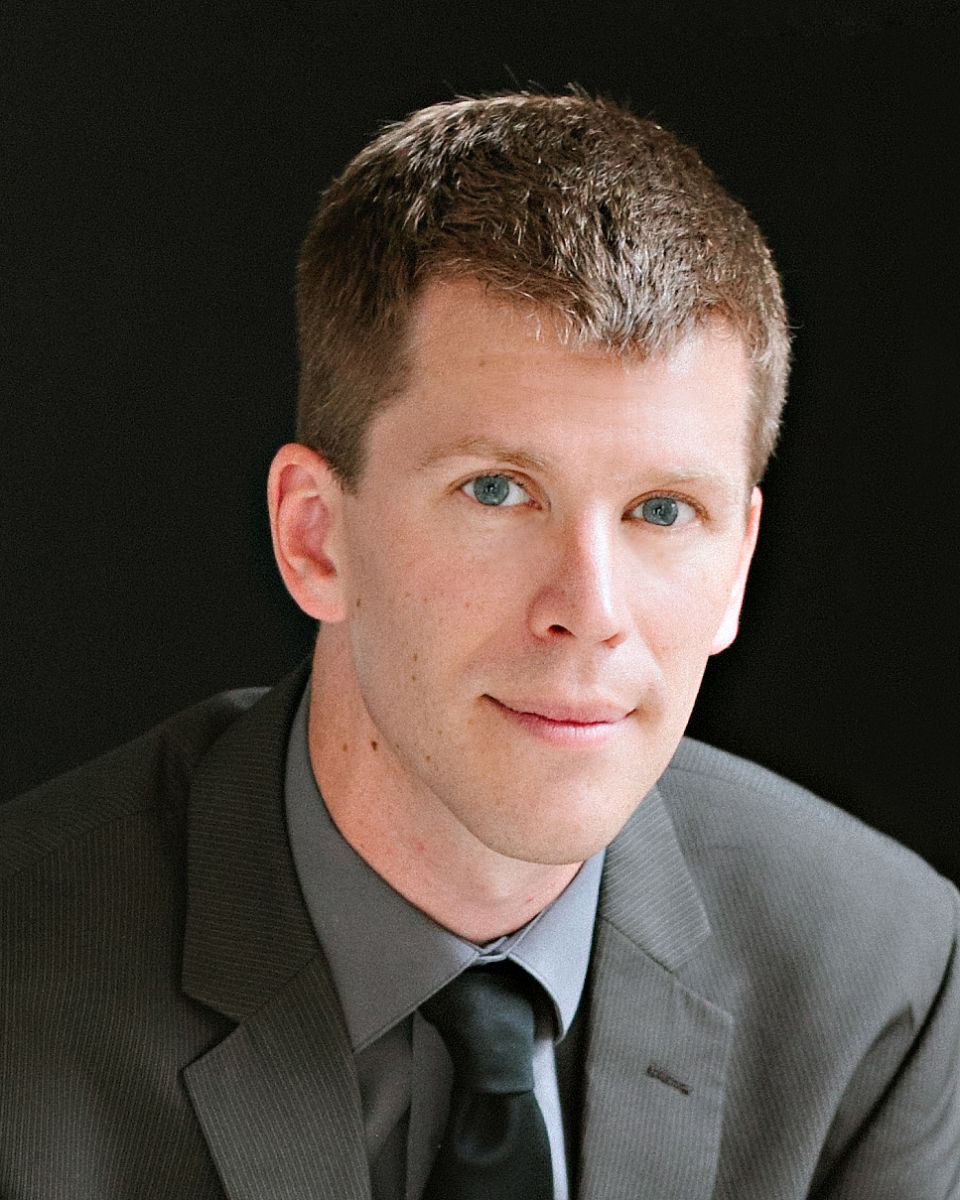 In the 2014–15 season, Craig Kier joined the University of Maryland School of Music as the director of the Maryland Opera Studio and in 2020, assumed the role of artistic and music director of the Annapolis Opera. Productions since the beginning of his tenure have included Mozart’s Don Giovanni, Le nozze di Figaro, Così fan tutte and La clemenza di Tito, Handel’s Ariodante, Janáček’s The Cunning Little Vixen, Ravel’s L’enfant et les sortilèges, Blitzstein’s Regina, Rossini’s L’occasione fa il ladro, Gluck’s Orfeo ed Euridice, Britten’s The Rape of Lucretia, Offenbach’s Orpheus in the Underworld and Poulenc’s Dialogues of the Carmelites. This season includes this production of Mozart’s The Magic Flute and John Musto’s Later the Same Evening with the Maryland Opera Studio and La Cenerentola, La bohème and Into the Woods with Annapolis Opera. In the 2019–20 season, he led Tosca with Annapolis Opera, was scheduled to return to the Brevard Music Center to conduct their season opening concert and Die Enführung aus dem Serail, returned to Houston Ballet to lead gala performances and The Nutcracker, which he has done since 2011, and continued his association with the National Symphony Orchestra, assisting Gianandrea Noseda. In the 2018–19 season, he made his San Francisco Merola Opera Center debut, Indianapolis Opera debut and returned to Opera Birmingham and Houston Ballet. At the University of Maryland, he served as artistic director of the year-long Kurt Weill Festival, conducting performances of The Road of Promise, Mahagonny Songspiel and Street Scene. Recent season highlights include conducting debuts with Wolf Trap Opera leading Britten’s The Rape of Lucretia, Brevard Opera Center leading La cenerentola, Anchorage Opera leading Don Pasquale, Arizona Opera leading Madama Butterfly and Opera Saratoga leading Verdi’s Falstaff. From 2010–13, Kier was associate conductor under Patrick Summers at Houston Grand Opera. During his time with the company, he led dozens of performances including Madama Butterfly, Il barbiere di Siviglia, Die Fledermaus, Trial by Jury and the world premiere of Huang Ruo’s Bound. Additional guest engagements for Kier include La bohème with Lyric Opera of Kansas City, Il barbiere di Siviglia with Atlanta Opera, Kurt Weill’s Lost in the Stars with the Glimmerglass Festival, The Sound of Music with Central City Opera, Thomas’ Hamlet and La traviata with Opera Birmingham, L’italiani in Algeri with Opera Santa Barbara and The Music Man at Royal Opera House Muscat, Oman.
In the 2014–15 season, Craig Kier joined the University of Maryland School of Music as the director of the Maryland Opera Studio and in 2020, assumed the role of artistic and music director of the Annapolis Opera. Productions since the beginning of his tenure have included Mozart’s Don Giovanni, Le nozze di Figaro, Così fan tutte and La clemenza di Tito, Handel’s Ariodante, Janáček’s The Cunning Little Vixen, Ravel’s L’enfant et les sortilèges, Blitzstein’s Regina, Rossini’s L’occasione fa il ladro, Gluck’s Orfeo ed Euridice, Britten’s The Rape of Lucretia, Offenbach’s Orpheus in the Underworld and Poulenc’s Dialogues of the Carmelites. This season includes this production of Mozart’s The Magic Flute and John Musto’s Later the Same Evening with the Maryland Opera Studio and La Cenerentola, La bohème and Into the Woods with Annapolis Opera. In the 2019–20 season, he led Tosca with Annapolis Opera, was scheduled to return to the Brevard Music Center to conduct their season opening concert and Die Enführung aus dem Serail, returned to Houston Ballet to lead gala performances and The Nutcracker, which he has done since 2011, and continued his association with the National Symphony Orchestra, assisting Gianandrea Noseda. In the 2018–19 season, he made his San Francisco Merola Opera Center debut, Indianapolis Opera debut and returned to Opera Birmingham and Houston Ballet. At the University of Maryland, he served as artistic director of the year-long Kurt Weill Festival, conducting performances of The Road of Promise, Mahagonny Songspiel and Street Scene. Recent season highlights include conducting debuts with Wolf Trap Opera leading Britten’s The Rape of Lucretia, Brevard Opera Center leading La cenerentola, Anchorage Opera leading Don Pasquale, Arizona Opera leading Madama Butterfly and Opera Saratoga leading Verdi’s Falstaff. From 2010–13, Kier was associate conductor under Patrick Summers at Houston Grand Opera. During his time with the company, he led dozens of performances including Madama Butterfly, Il barbiere di Siviglia, Die Fledermaus, Trial by Jury and the world premiere of Huang Ruo’s Bound. Additional guest engagements for Kier include La bohème with Lyric Opera of Kansas City, Il barbiere di Siviglia with Atlanta Opera, Kurt Weill’s Lost in the Stars with the Glimmerglass Festival, The Sound of Music with Central City Opera, Thomas’ Hamlet and La traviata with Opera Birmingham, L’italiani in Algeri with Opera Santa Barbara and The Music Man at Royal Opera House Muscat, Oman.
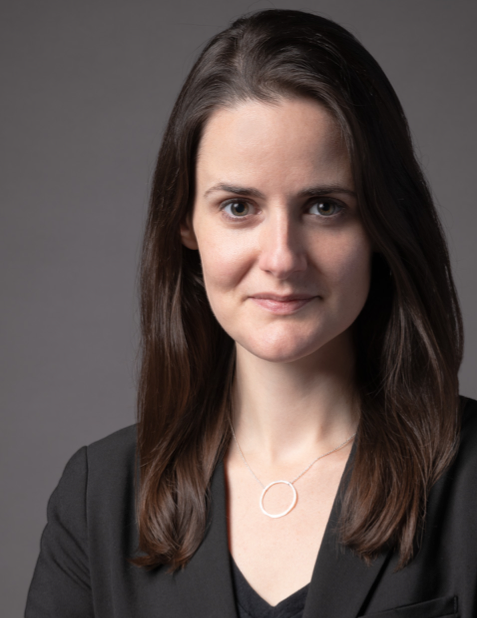 Stage Director Amanda Consol’s recent projects include a double bill of Cendrillon and Savitri for Wolf Trap Opera, Street Scene and The Dialogues of the Carmelites at the Maryland Opera Studio, and workshops and readings of new works with companies including Vital Opera and Washington National Opera (WNO). At WNO, Consol’s work includes programs for the American Opera Initiative and scenes programs with the Cafritz Young Artists where she has also served as dramatic instructor. Consol teaches young artists around the country for programs including CoOPERAtive at the Westminster Choir College, Sewanee Music Festival and at the University of Maryland where she has served as the director of acting for the Maryland Opera Studio since 2018.
Stage Director Amanda Consol’s recent projects include a double bill of Cendrillon and Savitri for Wolf Trap Opera, Street Scene and The Dialogues of the Carmelites at the Maryland Opera Studio, and workshops and readings of new works with companies including Vital Opera and Washington National Opera (WNO). At WNO, Consol’s work includes programs for the American Opera Initiative and scenes programs with the Cafritz Young Artists where she has also served as dramatic instructor. Consol teaches young artists around the country for programs including CoOPERAtive at the Westminster Choir College, Sewanee Music Festival and at the University of Maryland where she has served as the director of acting for the Maryland Opera Studio since 2018.
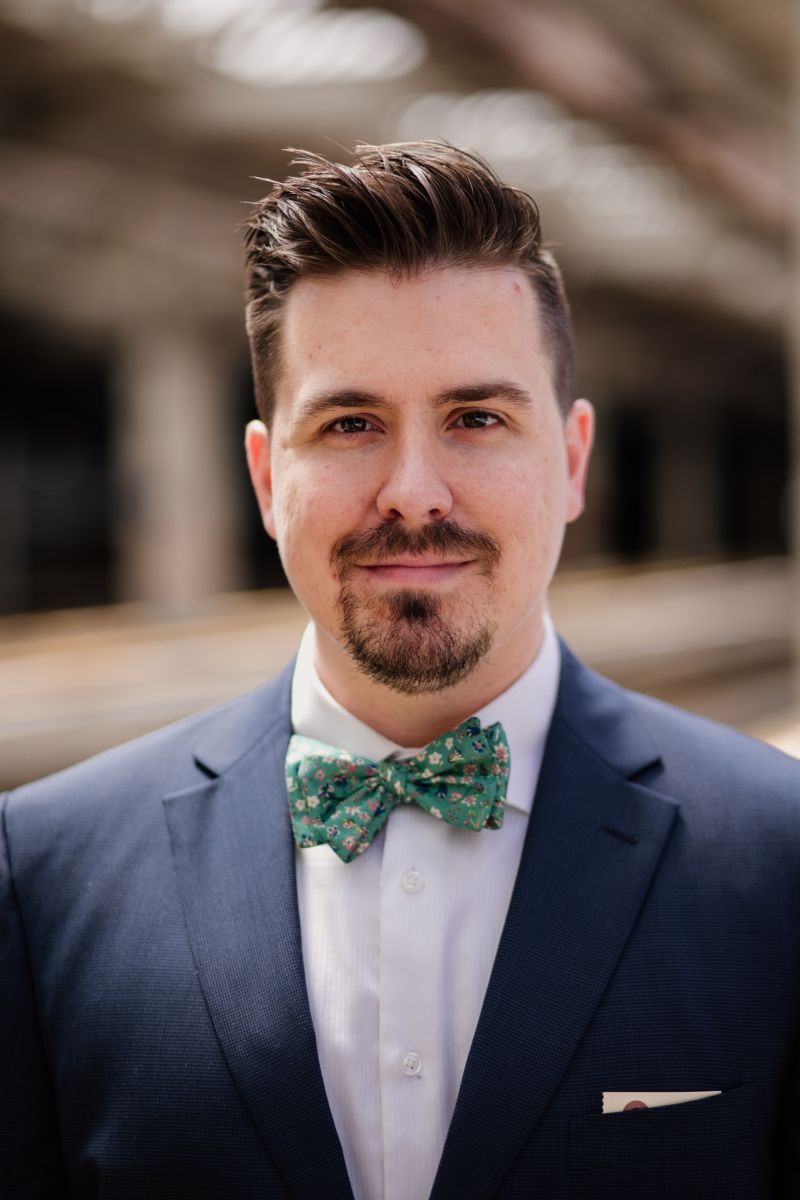 Celebrated as a “fresh presence,” and “fully alive” (Washington Post), Jonathan King, assistant conductor, currently serves as interim associate conductor with The Washington Chorus and is a doctoral candidate in choral conducting at the University of Maryland School of Music, where he has directed the University Chorale and serves as assistant conductor and junior lecturer with Maryland Opera Studio. King has prepared choirs to work with eminent conductors including Leonard Slatkin, Marin Alsop and Gianandrea Noseda, and regularly serves as assistant conductor to John Nelson. In 2022, King will work closely with Nelson in a monumental recording project of Handel’s Messiah at Westminster Abbey in London. As “a deft and sensitive accompanist” (Chicago Tribune), King has served as a répétiteur with the Lyric Opera of Chicago’s Unlimited Series, and at the Oregon Bach Festival, where he also served as assistant conductor during the 2018 and 2019 seasons. As a collaborative pianist, King has worked with celebrated singers including Nicole Cabell, J’Nai Bridges, Nicholas Phan and Will Liverman. As a duo, King and Liverman have recorded with Odradek Records and Deutsche Grammophon, and maintain an active recital schedule. They have appeared on historic world stages including Wigmore Hall and the Kennedy Center, and their album, “Whither Must I Wander” (Odradek, 2020), was named one of ten “Best Classical Recordings of 2020” by the Chicago Tribune, and “one of 2020’s finest classical releases” by ArtsFuse. The album also received a Critic’s Choice Award by Opera News. King holds two Master of Music degrees in piano chamber music and choral conducting from the University of Michigan, where he was the recipient of the Edward P. Frolich and Brehm Fellowship awards, and a Bachelor of Music degree from Wheaton College (IL).
Celebrated as a “fresh presence,” and “fully alive” (Washington Post), Jonathan King, assistant conductor, currently serves as interim associate conductor with The Washington Chorus and is a doctoral candidate in choral conducting at the University of Maryland School of Music, where he has directed the University Chorale and serves as assistant conductor and junior lecturer with Maryland Opera Studio. King has prepared choirs to work with eminent conductors including Leonard Slatkin, Marin Alsop and Gianandrea Noseda, and regularly serves as assistant conductor to John Nelson. In 2022, King will work closely with Nelson in a monumental recording project of Handel’s Messiah at Westminster Abbey in London. As “a deft and sensitive accompanist” (Chicago Tribune), King has served as a répétiteur with the Lyric Opera of Chicago’s Unlimited Series, and at the Oregon Bach Festival, where he also served as assistant conductor during the 2018 and 2019 seasons. As a collaborative pianist, King has worked with celebrated singers including Nicole Cabell, J’Nai Bridges, Nicholas Phan and Will Liverman. As a duo, King and Liverman have recorded with Odradek Records and Deutsche Grammophon, and maintain an active recital schedule. They have appeared on historic world stages including Wigmore Hall and the Kennedy Center, and their album, “Whither Must I Wander” (Odradek, 2020), was named one of ten “Best Classical Recordings of 2020” by the Chicago Tribune, and “one of 2020’s finest classical releases” by ArtsFuse. The album also received a Critic’s Choice Award by Opera News. King holds two Master of Music degrees in piano chamber music and choral conducting from the University of Michigan, where he was the recipient of the Edward P. Frolich and Brehm Fellowship awards, and a Bachelor of Music degree from Wheaton College (IL).
 Justina Lee, Principal Coach, has served as assistant conductor, pianist and coach in such venues as the Metropolitan Opera, Washington National Opera, Seattle Opera, the Glimmerglass Festival, the Wolf Trap Opera Company and the Castleton Festival. Internationally, she has worked with the International Opera Performing Experience and is on faculty with the Prague Summer Nights Music Festival. In recital, Lee has accompanied acclaimed tenor Lawrence Brownlee, also appearing with him on NPR’s Tiny Desk Concert series. She has also collaborated in recitals with other artists including Dimitri Pittas, Alex Richardson, Alyson Cambridge and Linda Mabbs. She has appeared under the auspices of the Marilyn Horne Foundation residency program, and on such recital series as On Wings of Song, the Harriman-Jewell Series and, most recently, Renée Fleming’s VOICES recital series. Lee is an alumna of the distinguished Lindemann Young Artist Development Program at the Metropolitan Opera, and holds degrees from the University of California, Los Angeles, and the Manhattan School of Music. She joined the University of Maryland faculty in 2008, where she currently serves as principal coach of the Maryland Opera Studio.
Justina Lee, Principal Coach, has served as assistant conductor, pianist and coach in such venues as the Metropolitan Opera, Washington National Opera, Seattle Opera, the Glimmerglass Festival, the Wolf Trap Opera Company and the Castleton Festival. Internationally, she has worked with the International Opera Performing Experience and is on faculty with the Prague Summer Nights Music Festival. In recital, Lee has accompanied acclaimed tenor Lawrence Brownlee, also appearing with him on NPR’s Tiny Desk Concert series. She has also collaborated in recitals with other artists including Dimitri Pittas, Alex Richardson, Alyson Cambridge and Linda Mabbs. She has appeared under the auspices of the Marilyn Horne Foundation residency program, and on such recital series as On Wings of Song, the Harriman-Jewell Series and, most recently, Renée Fleming’s VOICES recital series. Lee is an alumna of the distinguished Lindemann Young Artist Development Program at the Metropolitan Opera, and holds degrees from the University of California, Los Angeles, and the Manhattan School of Music. She joined the University of Maryland faculty in 2008, where she currently serves as principal coach of the Maryland Opera Studio.
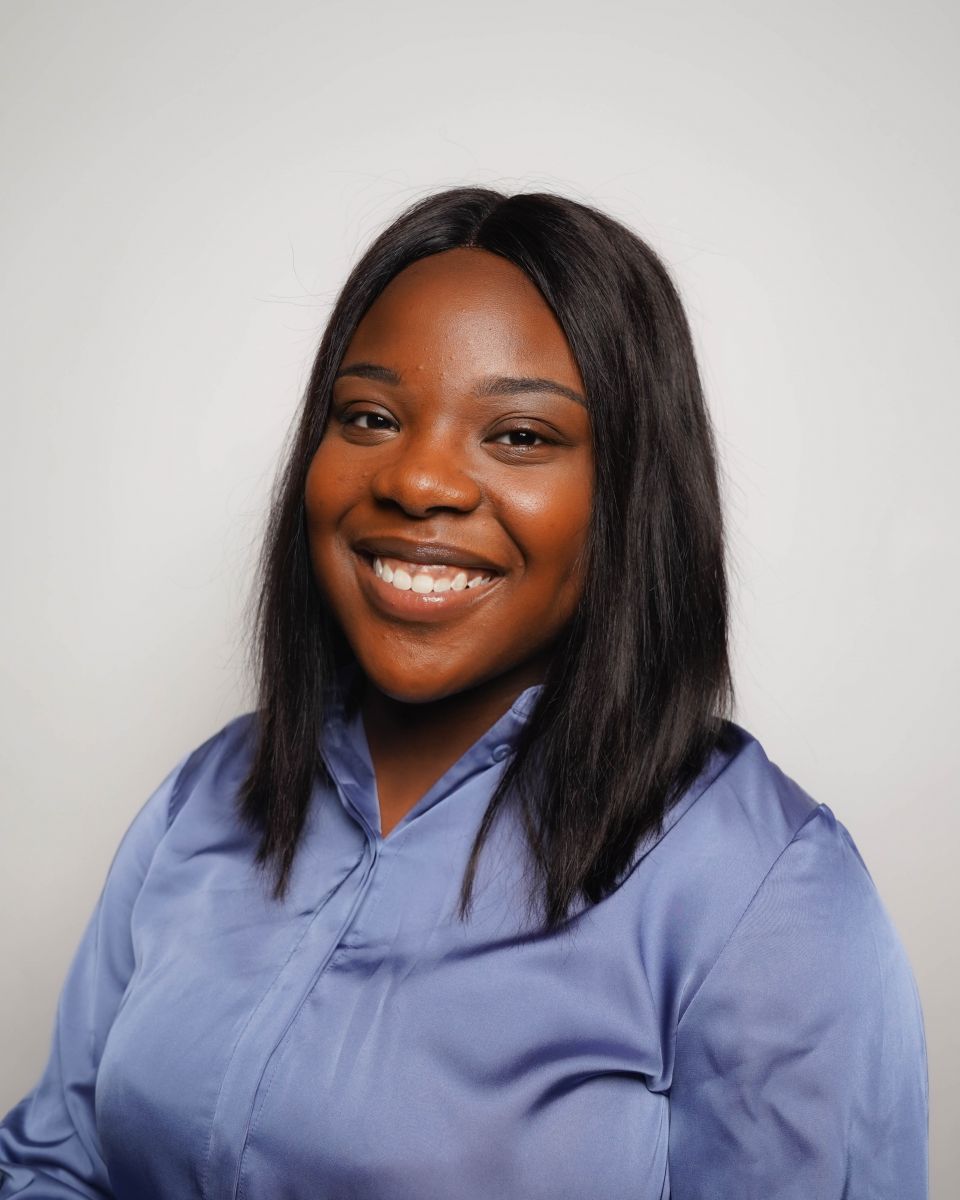
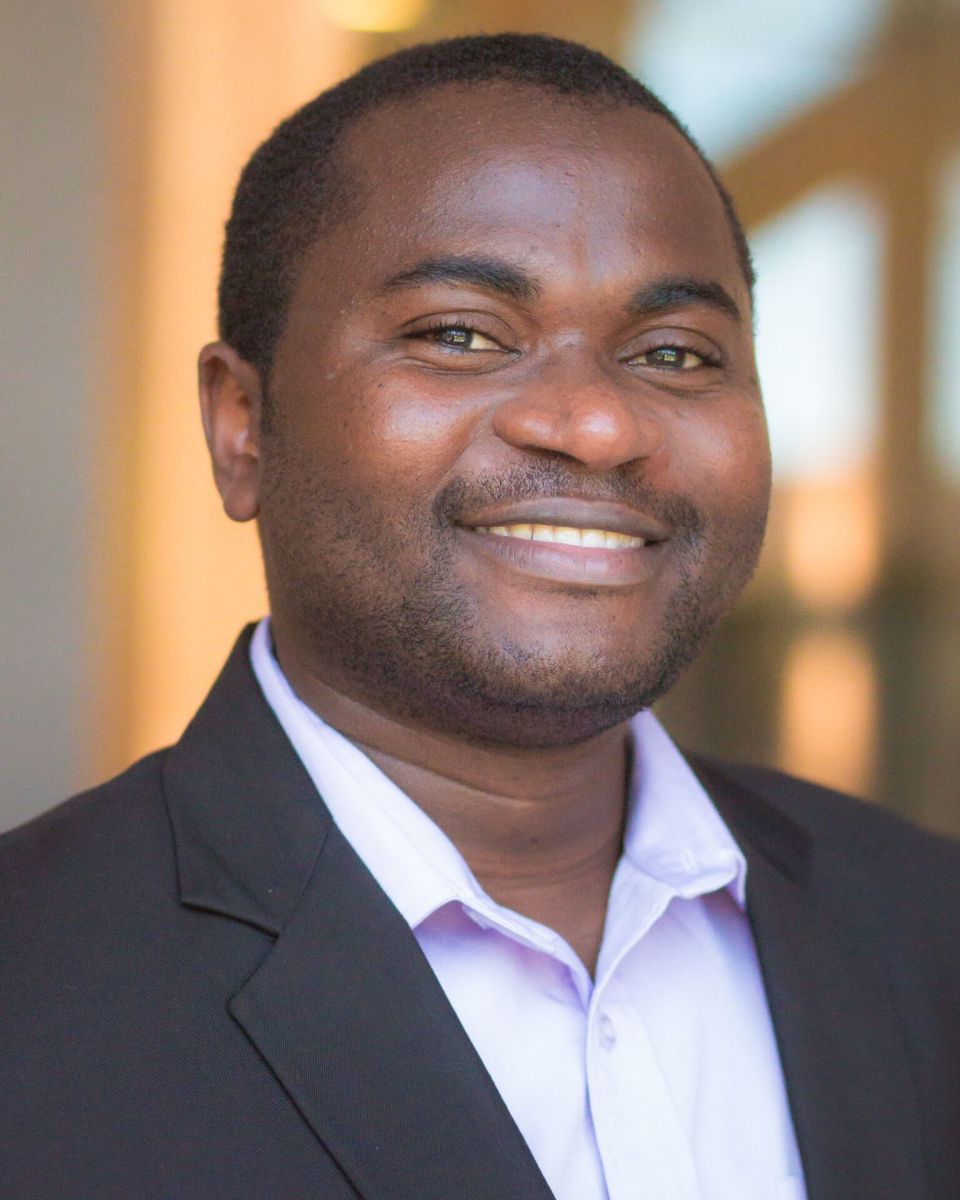 Lawrence Barasa (Kenya) First Armored Man/Second Priest, tenor, developed his artistic profile as a member and assistant production manager of the Kenyan Boys Choir. In this capacity he interacted and performed with artists including the Jonas Brothers, Ellie Goulding, Ciara and Demi Lovato. Barasa has performed the roles of Spoletta in Astoria Music Festival and Eugene Opera’s production of Tosca. He also appeared as Don Basilio and Don Curzio in Le nozze di Figaro at the Astoria Music Festival in 2018, Hoffmann in Les contes d’Hoffmann and Don José in La Tragedy de Carmen at the University of Oregon. Barasa completed training at the Savannah Voice Festival 2019–20 under the tutelage of Sherrill Milnes and Maria Zouaves. Barasa graduated from the University of Oregon with a vocal performance degree under Karen Esquivel. He is currently a graduate international student at the University of Maryland Opera Studio studying with Professor Dolores Ziegler.
Lawrence Barasa (Kenya) First Armored Man/Second Priest, tenor, developed his artistic profile as a member and assistant production manager of the Kenyan Boys Choir. In this capacity he interacted and performed with artists including the Jonas Brothers, Ellie Goulding, Ciara and Demi Lovato. Barasa has performed the roles of Spoletta in Astoria Music Festival and Eugene Opera’s production of Tosca. He also appeared as Don Basilio and Don Curzio in Le nozze di Figaro at the Astoria Music Festival in 2018, Hoffmann in Les contes d’Hoffmann and Don José in La Tragedy de Carmen at the University of Oregon. Barasa completed training at the Savannah Voice Festival 2019–20 under the tutelage of Sherrill Milnes and Maria Zouaves. Barasa graduated from the University of Oregon with a vocal performance degree under Karen Esquivel. He is currently a graduate international student at the University of Maryland Opera Studio studying with Professor Dolores Ziegler.
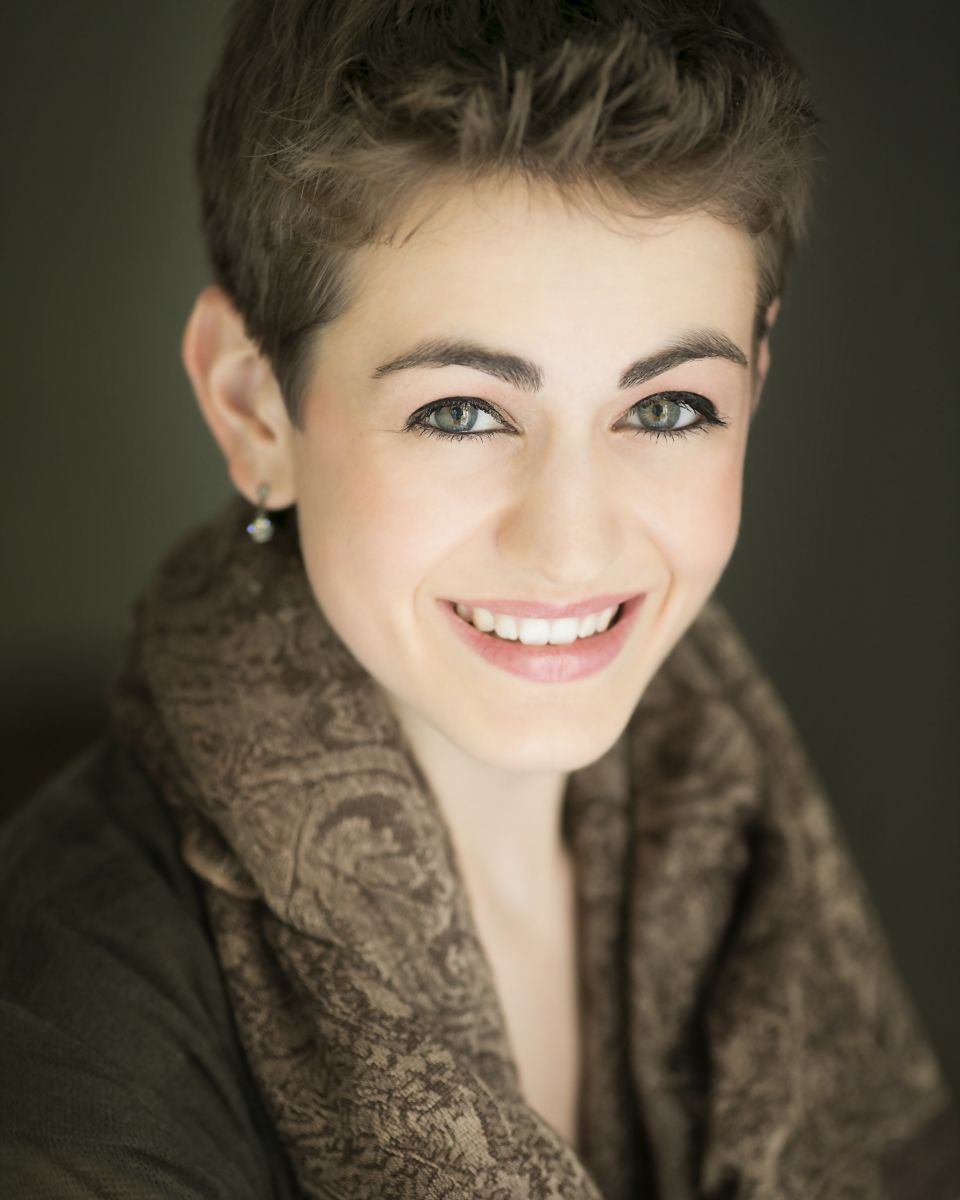 Amy Nicole Broadbent is a second-year graduate student in choral conducting. She currently serves as vocalist and assistant conductor of the Sea Chanters, the official chorus of the U.S. Navy, where she also manages their educational outreach program. She has also served as assistant conductor for the Victorian Lyric Opera Company since 2018, where she has conducted three fully staged productions. A prize-winning soprano, she has performed in many of the nation’s world-class and GRAMMY award-winning choral ensembles, including: The Crossing, True Concord, The Thirteen, the Choir of Trinity Wall Street, the Santa Fe Desert Chorale, the Berwick Chorus of the Oregon Bach Festival and the Washington Bach Consort. She also is a founding member of the vocal quartet The Polyphonists. Broadbent holds degrees from the University of Maryland in vocal performance (B.M. 2014) and music education (B.M.E. 2014)
Amy Nicole Broadbent is a second-year graduate student in choral conducting. She currently serves as vocalist and assistant conductor of the Sea Chanters, the official chorus of the U.S. Navy, where she also manages their educational outreach program. She has also served as assistant conductor for the Victorian Lyric Opera Company since 2018, where she has conducted three fully staged productions. A prize-winning soprano, she has performed in many of the nation’s world-class and GRAMMY award-winning choral ensembles, including: The Crossing, True Concord, The Thirteen, the Choir of Trinity Wall Street, the Santa Fe Desert Chorale, the Berwick Chorus of the Oregon Bach Festival and the Washington Bach Consort. She also is a founding member of the vocal quartet The Polyphonists. Broadbent holds degrees from the University of Maryland in vocal performance (B.M. 2014) and music education (B.M.E. 2014)
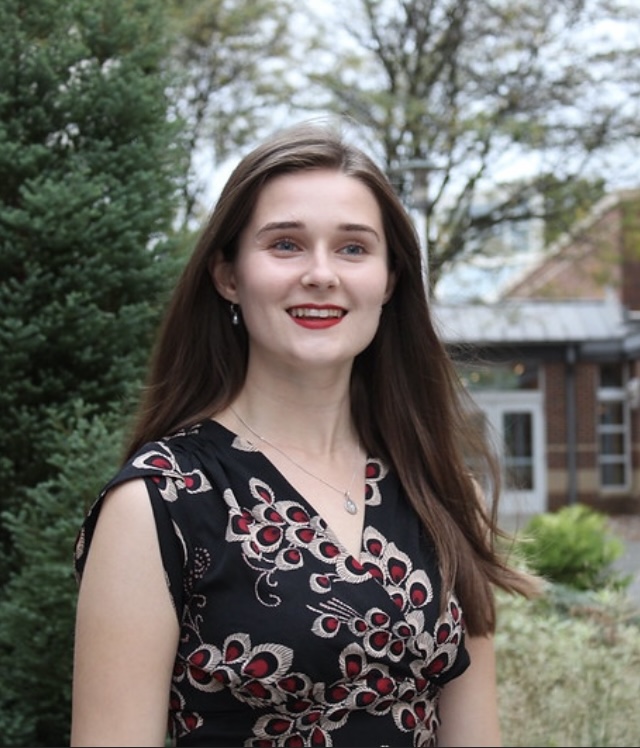 Amelia Brooks-Everist (Southampton, England) 1st Knabe, soprano, is a junior pursuing her degree in voice performance with the University of Maryland School of Music. She has performed with the UMD Chamber Singers and Maryland's student-run opera company, OperaTerps. She is a student of Jennifer Casey Cabot.
Amelia Brooks-Everist (Southampton, England) 1st Knabe, soprano, is a junior pursuing her degree in voice performance with the University of Maryland School of Music. She has performed with the UMD Chamber Singers and Maryland's student-run opera company, OperaTerps. She is a student of Jennifer Casey Cabot.
.jpeg) Michael Butler (Bowie, MD) Monostatos, tenor, is a first-year student in the Maryland Opera Studio. He is a graduate of the University of Maryland School of Music, earning his B.M. in vocal performance in 2021. Butler made his New York City Opera debut in Summer 2020, and his Des Moines Metro Opera debut in Summer 2021. Butler’s most recent roles include Prince Sou-Chong in Lehár’s Das Land des Lächelns with Washington Opera Society (2018), Claudio in the world premiere of Francis Pollock’s Briscula the Magician with Belcantanti Opera Company, Dancaire in Bizet’s Carmen with Washington Opera Society, Messenger in Verdi’s Aïda with Washington Opera Society, Tamino in Mozart’s Die Zauberflöte with Bethesda Music Festival, Borsa in Verdi’s Rigoletto with Belcantanti Opera Company, Ivan Lykov in Rimsky-Korsakov’s The Czar’s Bride with Belcantanti Opera Company and the title role in Rossini’s Le Comte Ory with Chicago Summer Opera. Butler is a student of bass-baritone Kevin Short.
Michael Butler (Bowie, MD) Monostatos, tenor, is a first-year student in the Maryland Opera Studio. He is a graduate of the University of Maryland School of Music, earning his B.M. in vocal performance in 2021. Butler made his New York City Opera debut in Summer 2020, and his Des Moines Metro Opera debut in Summer 2021. Butler’s most recent roles include Prince Sou-Chong in Lehár’s Das Land des Lächelns with Washington Opera Society (2018), Claudio in the world premiere of Francis Pollock’s Briscula the Magician with Belcantanti Opera Company, Dancaire in Bizet’s Carmen with Washington Opera Society, Messenger in Verdi’s Aïda with Washington Opera Society, Tamino in Mozart’s Die Zauberflöte with Bethesda Music Festival, Borsa in Verdi’s Rigoletto with Belcantanti Opera Company, Ivan Lykov in Rimsky-Korsakov’s The Czar’s Bride with Belcantanti Opera Company and the title role in Rossini’s Le Comte Ory with Chicago Summer Opera. Butler is a student of bass-baritone Kevin Short.
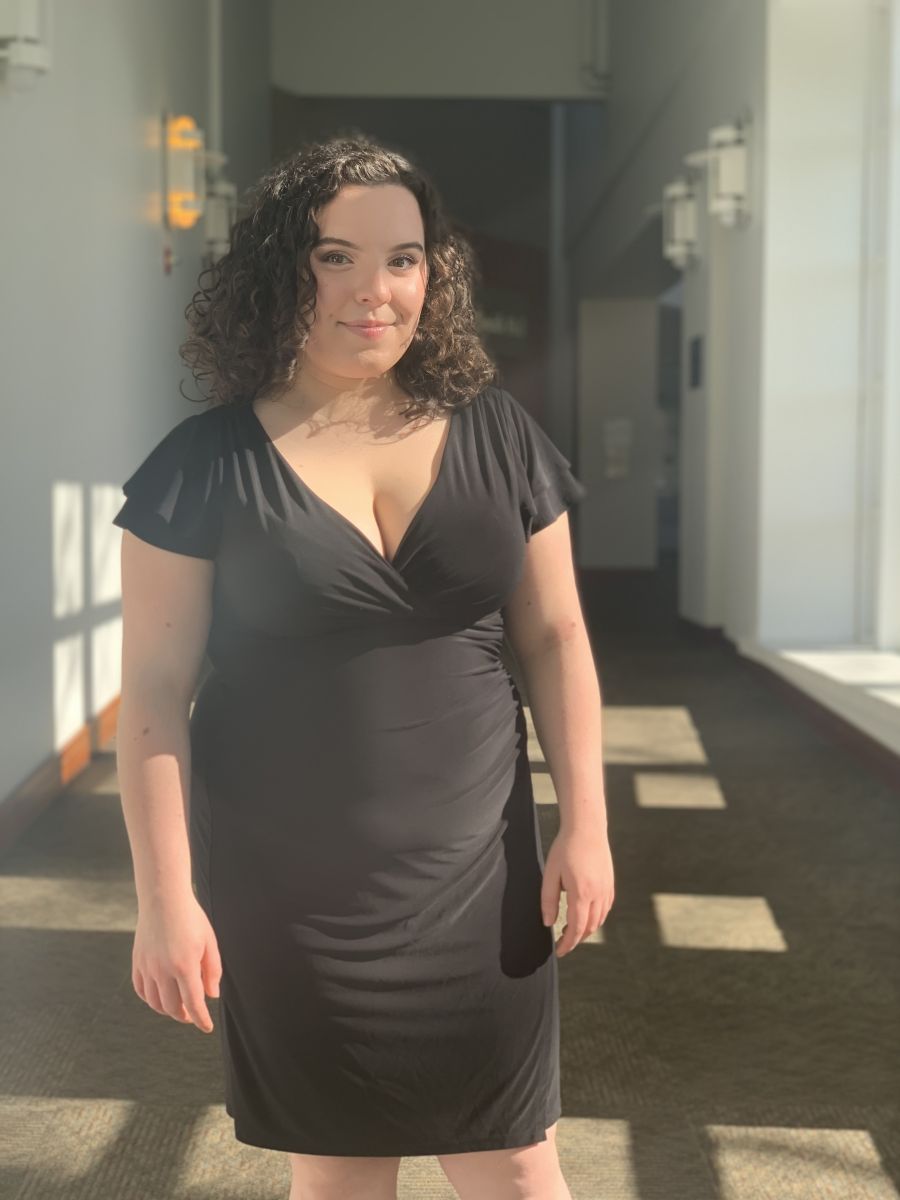 Isabella Cadirola (Washington, D.C.) 2nd Knabe, soprano, is a junior at the University of Maryland pursuing dual degrees in vocal performance and music education. She performs in the UMD Chamber Singers and Maryland’s student-run opera group, OperaTerps. She co-directs Femmes de Chanson, a student ensemble sponsored by the School of Music. Cadirola is a student of Gran Wilson.
Isabella Cadirola (Washington, D.C.) 2nd Knabe, soprano, is a junior at the University of Maryland pursuing dual degrees in vocal performance and music education. She performs in the UMD Chamber Singers and Maryland’s student-run opera group, OperaTerps. She co-directs Femmes de Chanson, a student ensemble sponsored by the School of Music. Cadirola is a student of Gran Wilson.
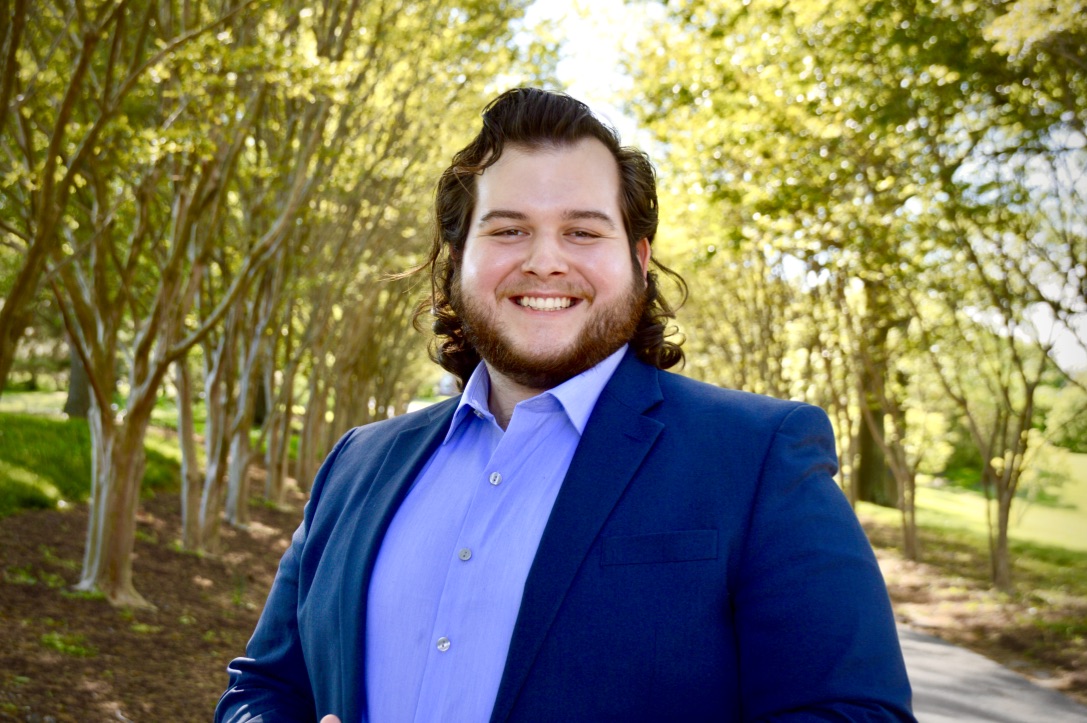 Henrique Carvalho (São Paulo, Brazil) Speaker/Priest, baritone, is a first-year student in the Maryland Opera Studio. He earned his bachelor's degree in voice performance from the University of Maryland School of Music. Carvalho's most recent roles include Jake in the Annapolis Opera and Maryland Opera Studio's co-production of Sunder by Nailah Nombeko and Alicia Haymer (2021), the title role in Thomas Pasatieri's Signor Deluso with the University of Maryland's student-run opera company OperaTerps (2020) and Officer Harry Murphy in Kurt Weill's Street Scene with the Maryland Opera Studio (2019). Carvalho is a student of Kevin Short.
Henrique Carvalho (São Paulo, Brazil) Speaker/Priest, baritone, is a first-year student in the Maryland Opera Studio. He earned his bachelor's degree in voice performance from the University of Maryland School of Music. Carvalho's most recent roles include Jake in the Annapolis Opera and Maryland Opera Studio's co-production of Sunder by Nailah Nombeko and Alicia Haymer (2021), the title role in Thomas Pasatieri's Signor Deluso with the University of Maryland's student-run opera company OperaTerps (2020) and Officer Harry Murphy in Kurt Weill's Street Scene with the Maryland Opera Studio (2019). Carvalho is a student of Kevin Short.
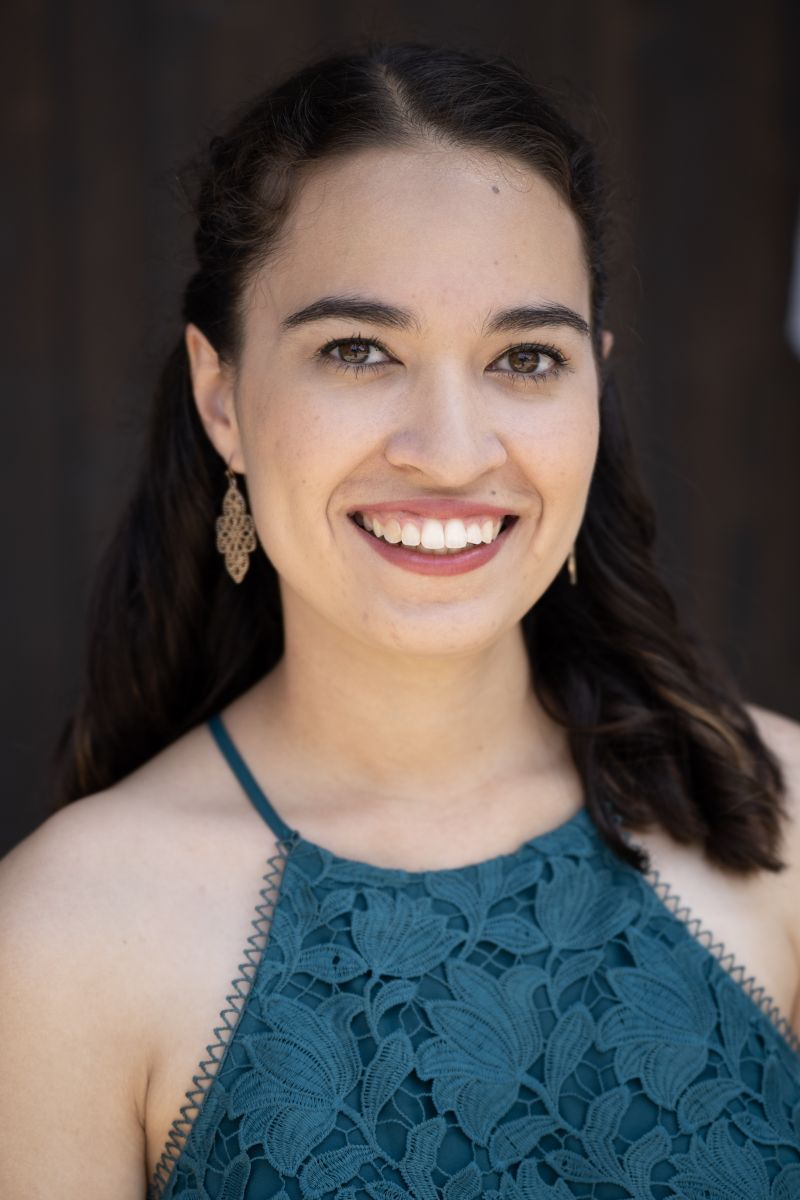 Amanda Densmoor (Bogor, Indonesia) Queen of the Night, soprano, is a second-year student in the Maryland Opera Studio. Densmoor recently graduated from the University of Maryland, where she earned a Bachelor of Music in vocal performance, summa cum laude. Amanda’s recent roles include Servilia in La Clemenza di Tito (2021), Nella in Gianni Schicchi, Suor Genovieffa in Suor Angelica, Patience in Patience (2019), Counsel in Trial by Jury (2018), Second Woman in Dido and Aeneas (2017) and Kate in The Pirates of Penzance (2016). As a concert soloist, Densmoor has sung in Carissimi’s Jephte, Haydn’s Missa in Angustiis (2016) and Mozart’s Requiem (2018). Densmoor is a student of Jennifer Casey Cabot.
Amanda Densmoor (Bogor, Indonesia) Queen of the Night, soprano, is a second-year student in the Maryland Opera Studio. Densmoor recently graduated from the University of Maryland, where she earned a Bachelor of Music in vocal performance, summa cum laude. Amanda’s recent roles include Servilia in La Clemenza di Tito (2021), Nella in Gianni Schicchi, Suor Genovieffa in Suor Angelica, Patience in Patience (2019), Counsel in Trial by Jury (2018), Second Woman in Dido and Aeneas (2017) and Kate in The Pirates of Penzance (2016). As a concert soloist, Densmoor has sung in Carissimi’s Jephte, Haydn’s Missa in Angustiis (2016) and Mozart’s Requiem (2018). Densmoor is a student of Jennifer Casey Cabot.
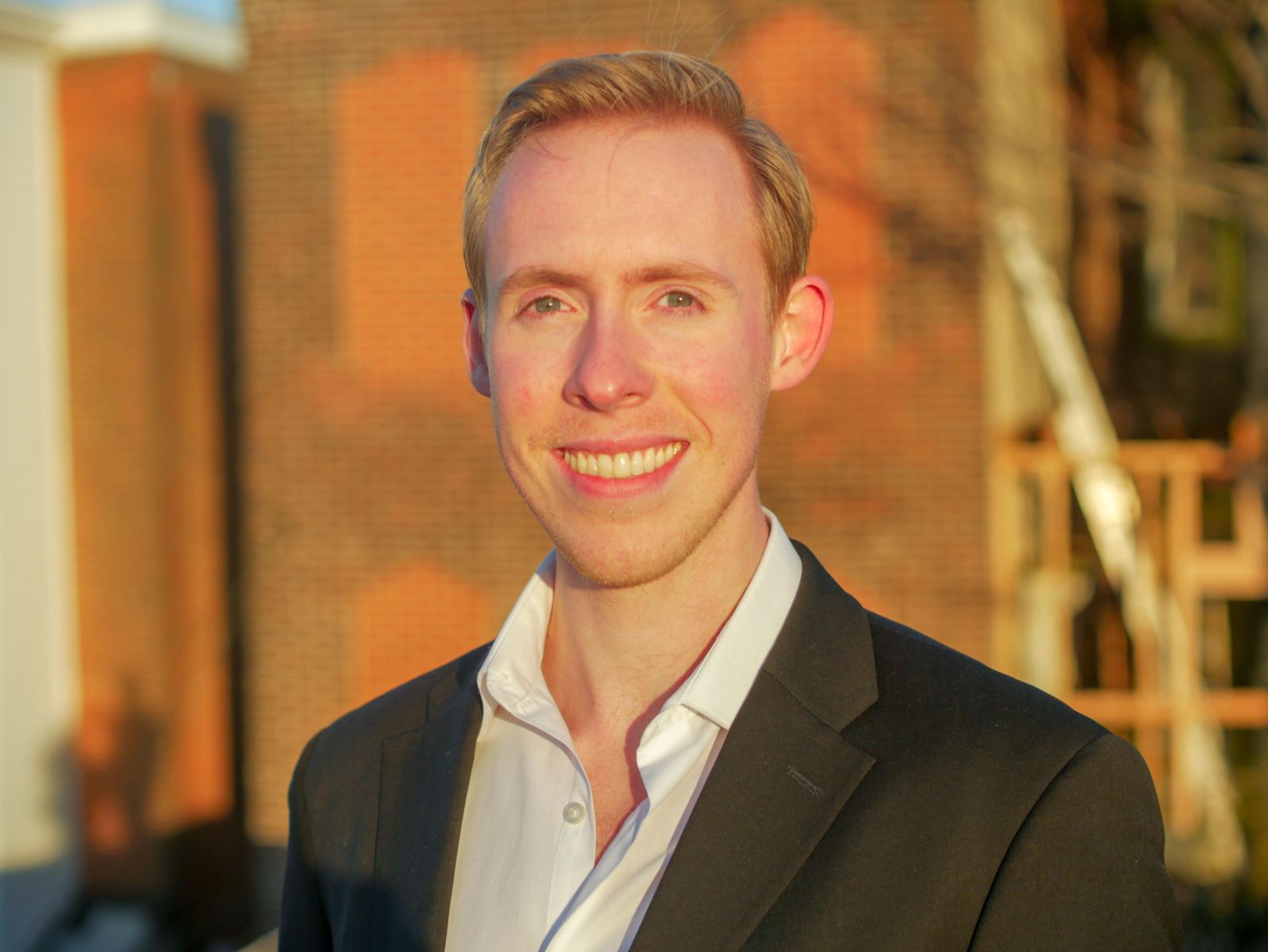 Colin Doyle (Boulder, CO) Tamino, tenor, is a recent graduate of the Maryland Opera Studio. This past summer, Doyle covered the role of Tito in Opera Steamboat's production of La Clemenza di Tito, and the roles of Basilio and Curzio in Le nozze di Figaro. Other recent roles include Belfiore in the Maryland Opera Studio's production of La finta giardiniera, Edwin in Opera Delaware's Trial by Jury and Ira (cover) in Opera Philadelphia's world premiere of Lembit Beecher's opera Sky on Swings. Doyle was the 2021 recipient of the Frances MacEachron award in the Lyndon Woodside Oratorio Competition and has appeared as the tenor soloist in performances of Handel's Messiah, Mozart's Requiem, Bach's St. John Passion, Thomas Lloyd’s Bonhoeffer and Debussy's L'enfant prodigue.
Colin Doyle (Boulder, CO) Tamino, tenor, is a recent graduate of the Maryland Opera Studio. This past summer, Doyle covered the role of Tito in Opera Steamboat's production of La Clemenza di Tito, and the roles of Basilio and Curzio in Le nozze di Figaro. Other recent roles include Belfiore in the Maryland Opera Studio's production of La finta giardiniera, Edwin in Opera Delaware's Trial by Jury and Ira (cover) in Opera Philadelphia's world premiere of Lembit Beecher's opera Sky on Swings. Doyle was the 2021 recipient of the Frances MacEachron award in the Lyndon Woodside Oratorio Competition and has appeared as the tenor soloist in performances of Handel's Messiah, Mozart's Requiem, Bach's St. John Passion, Thomas Lloyd’s Bonhoeffer and Debussy's L'enfant prodigue.
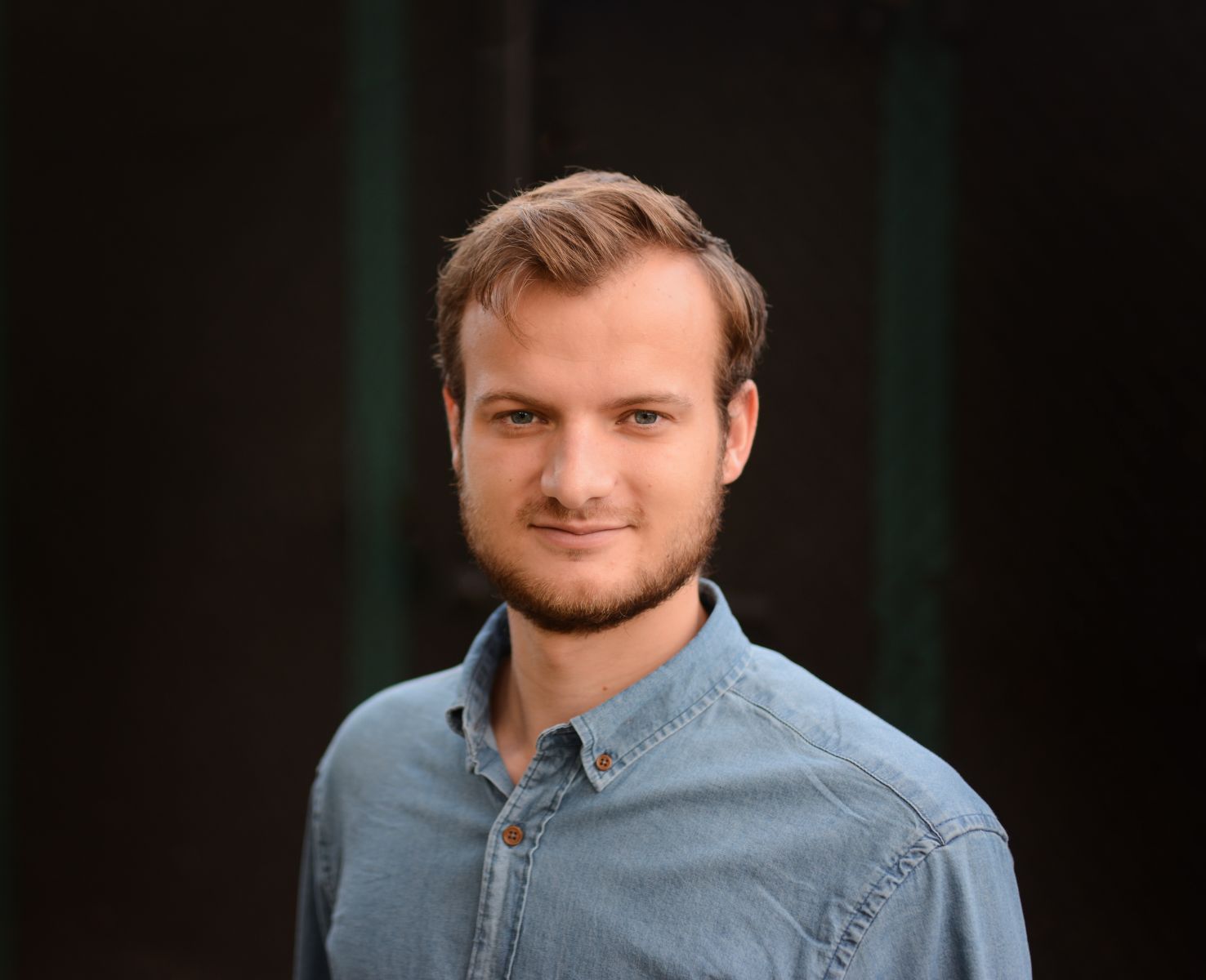
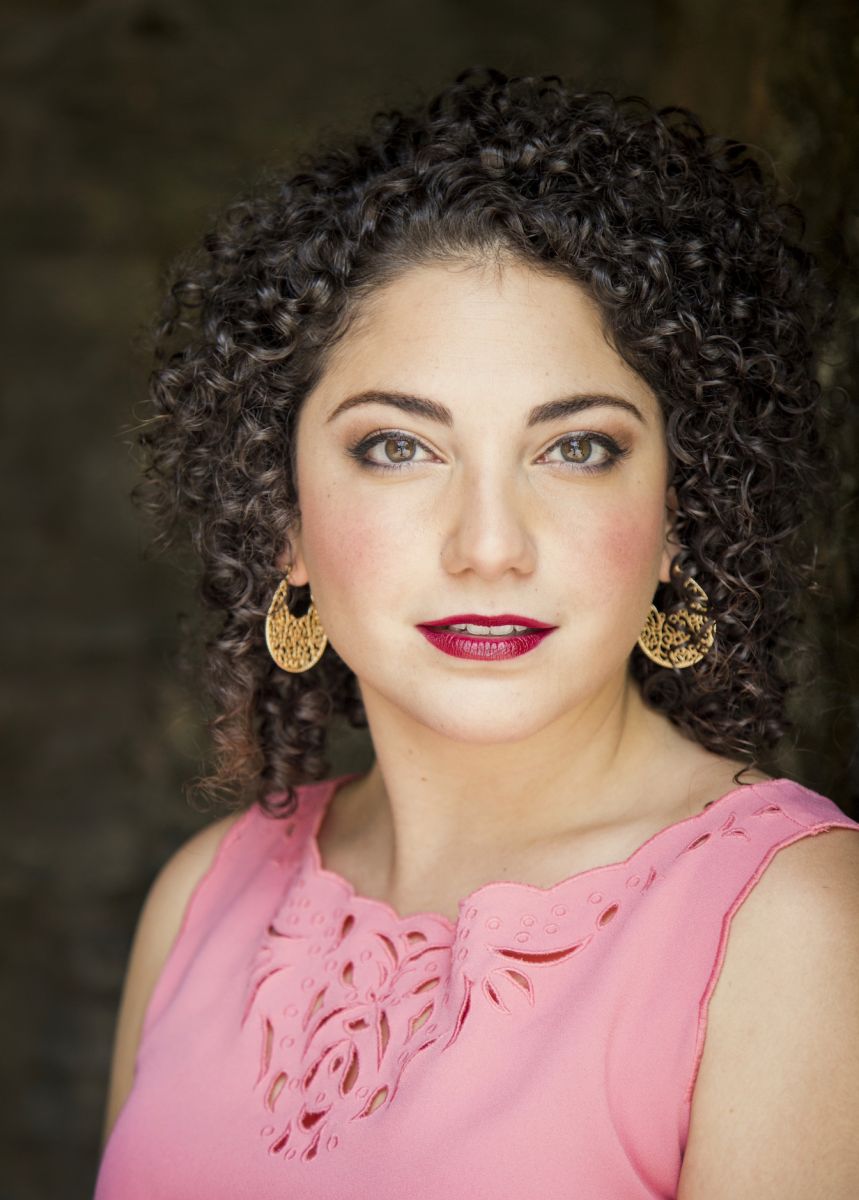 Jessica Harika (Richmond, VA) Third Lady, mezzo-soprano, is a Lebanese-American first-year D.M.A. student. She holds degrees from Virginia Commonwealth University (B.M. magna cum laude) and The New England Conservatory of Music (M.M. with honors). She has most recently been seen in Heartbeat Opera’s acclaimed production of Der Frieschütz, and singing in Friday After Friday, a new work by Leanna Kirchoff (winner of Opera America’s Grant for Female Composers), with libretto by Rachel Peters. Harika has also been seen with dell’Arte Opera Ensemble, Natchez Festival of Music, Opera Theatre St. Louis, Opera Maine and The Janiec Opera Company. Harika has been heard in concert with Bach in the Heights, The Brevard Music Festival Orchestra, The Cape Cod Chorale and The NEC Philharmonia. In 2017, she was named a semi-finalist in the Mary Jacobs Singer of the Year Competition, and has been seen in masterclass with Marilyn Horne, Stephanie Blythe and Jane Eaglen. She is a student of Delores Ziegler.
Jessica Harika (Richmond, VA) Third Lady, mezzo-soprano, is a Lebanese-American first-year D.M.A. student. She holds degrees from Virginia Commonwealth University (B.M. magna cum laude) and The New England Conservatory of Music (M.M. with honors). She has most recently been seen in Heartbeat Opera’s acclaimed production of Der Frieschütz, and singing in Friday After Friday, a new work by Leanna Kirchoff (winner of Opera America’s Grant for Female Composers), with libretto by Rachel Peters. Harika has also been seen with dell’Arte Opera Ensemble, Natchez Festival of Music, Opera Theatre St. Louis, Opera Maine and The Janiec Opera Company. Harika has been heard in concert with Bach in the Heights, The Brevard Music Festival Orchestra, The Cape Cod Chorale and The NEC Philharmonia. In 2017, she was named a semi-finalist in the Mary Jacobs Singer of the Year Competition, and has been seen in masterclass with Marilyn Horne, Stephanie Blythe and Jane Eaglen. She is a student of Delores Ziegler.
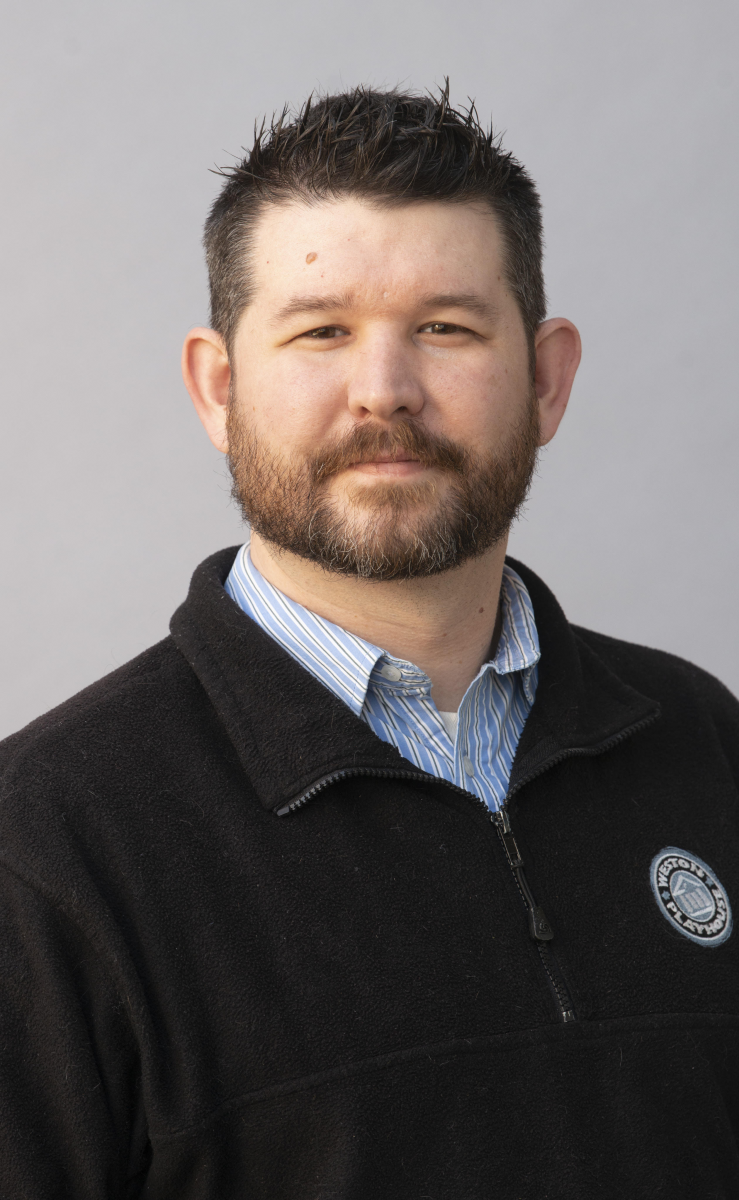 Devin Kinch, projection design, currently serves as an associate designer for Vidco and is the projections coordinator for The Clarice Performing Arts Center. Recent work includes Machinal (media and media systems design), Sense and Sensibility (video director) and The Lady From the Village of Falling Flowers (video director).
Devin Kinch, projection design, currently serves as an associate designer for Vidco and is the projections coordinator for The Clarice Performing Arts Center. Recent work includes Machinal (media and media systems design), Sense and Sensibility (video director) and The Lady From the Village of Falling Flowers (video director).
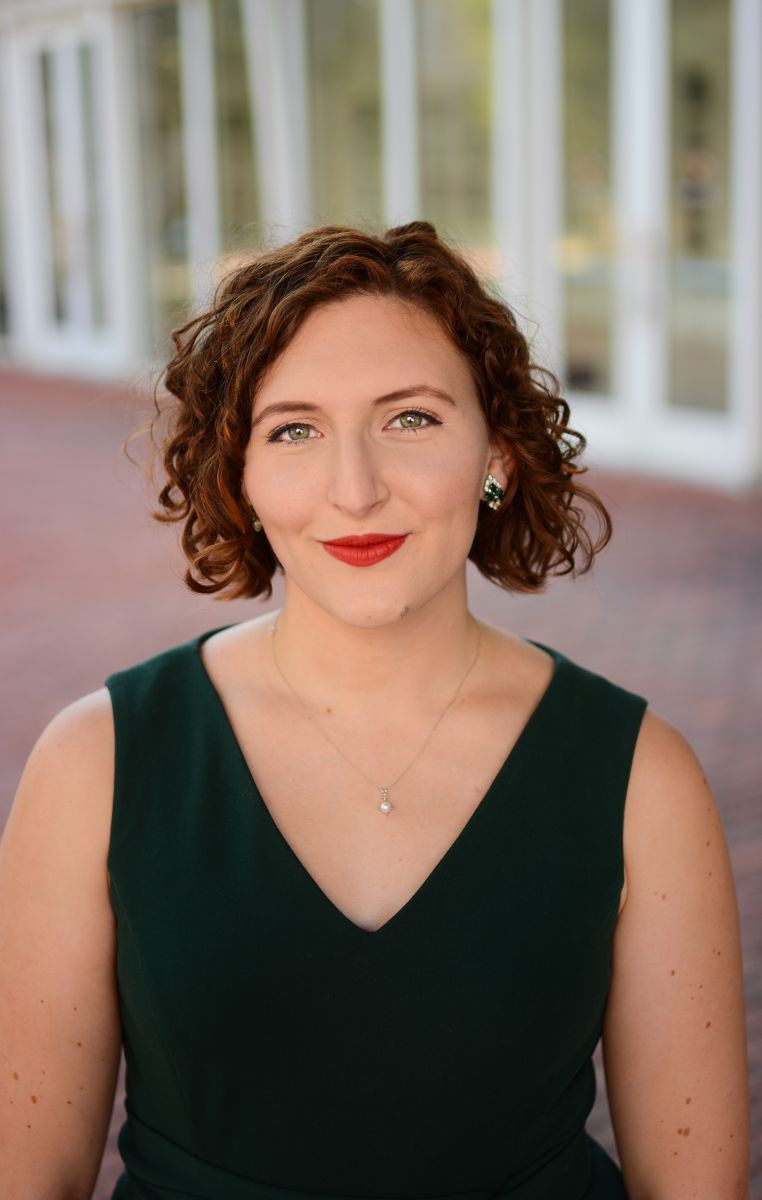
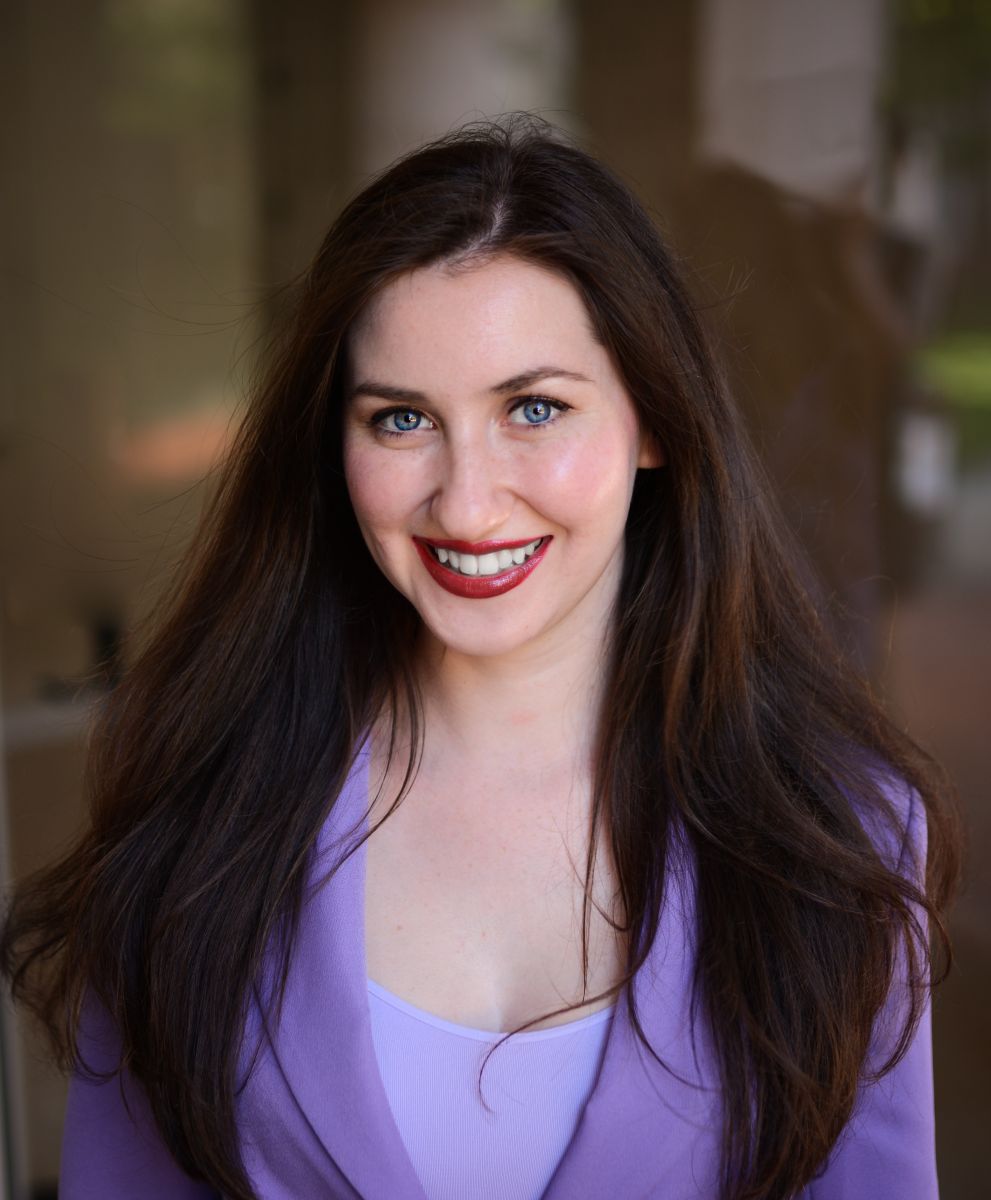
 Francesca Napolitano (Danvers, MA) Pamina, soprano, is a second-year student in the Maryland Opera Studio. She earned her bachelor’s degree in voice performance from the University of Michigan School of Music, Theatre, and Dance. Napolitano’s most recent roles include Morgana in Handel’s Alcina (2019) and Barbarina in Mozart’s Le nozze di Figaro (2018) with the University of Michigan Opera Theatre, and Berginella in Offenbach’s La Périchole and Kate in Gilbert and Sullivan’s The Pirates of Penzance with College Light Opera Company (2018). Recent musical theater roles include Fraulein Kost in Cabaret and Eulalie Mackecknie Shinn in The Music Man with College Light Opera Company (2018). Napolitano is a student of Gran Wilson.
Francesca Napolitano (Danvers, MA) Pamina, soprano, is a second-year student in the Maryland Opera Studio. She earned her bachelor’s degree in voice performance from the University of Michigan School of Music, Theatre, and Dance. Napolitano’s most recent roles include Morgana in Handel’s Alcina (2019) and Barbarina in Mozart’s Le nozze di Figaro (2018) with the University of Michigan Opera Theatre, and Berginella in Offenbach’s La Périchole and Kate in Gilbert and Sullivan’s The Pirates of Penzance with College Light Opera Company (2018). Recent musical theater roles include Fraulein Kost in Cabaret and Eulalie Mackecknie Shinn in The Music Man with College Light Opera Company (2018). Napolitano is a student of Gran Wilson.
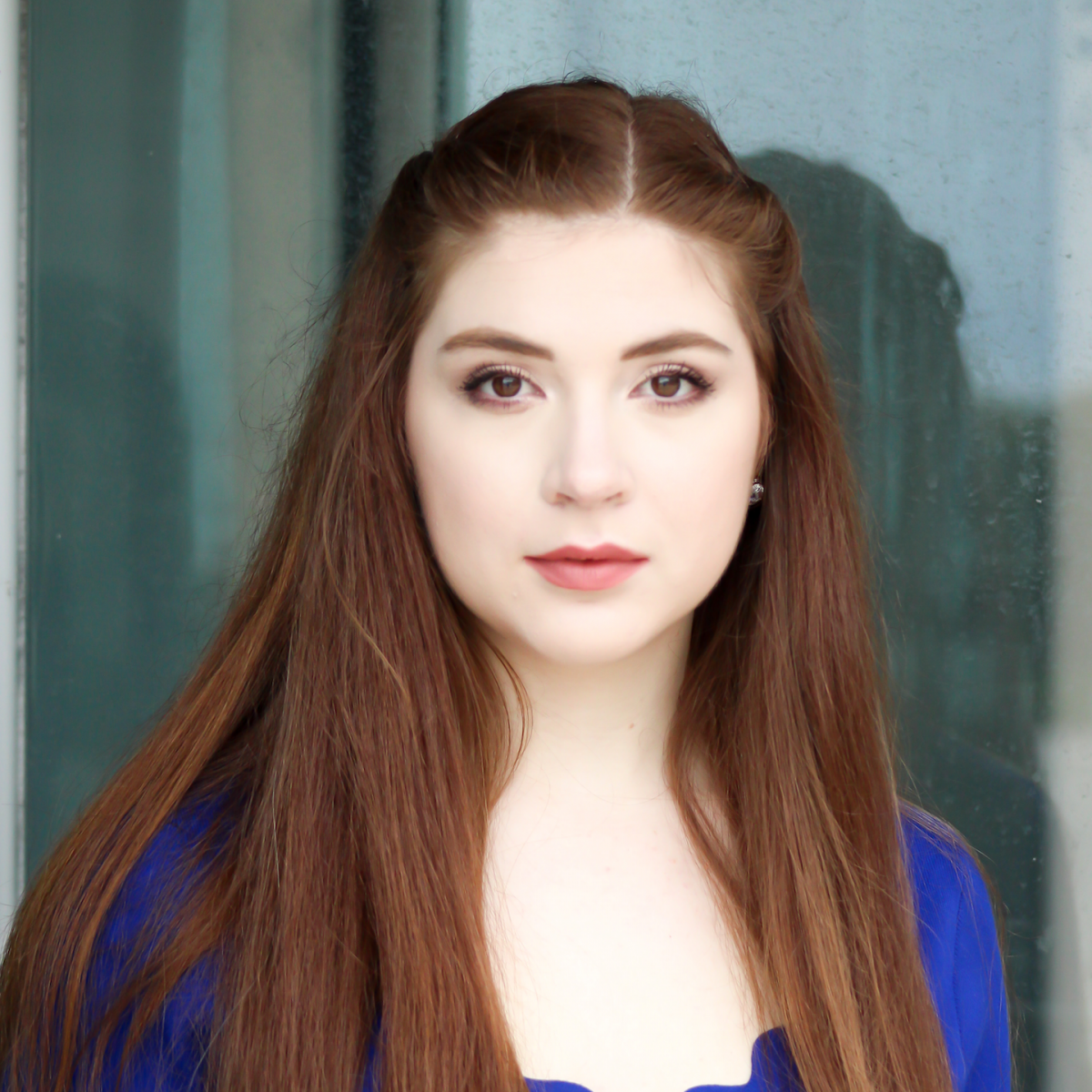 Kira Neary (New York, NY), Papagena, soprano, is currently a first-year student in the Maryland Opera Studio. She just finished her undergraduate study at Northwestern University, where she obtained a Bachelor of Music in voice and opera performance alongside a Bachelor of Arts in European History. Neary’s most recent roles include La Musica in Northwestern University’s online production of Monteverdi’s L’Orfeo, entitled Orfeo Remote (available on YouTube as of January 2021), the Mother in David T. Little’s cutting-edge opera Dog Days with Northwestern University Opera Theater (2019), Poppea in Monteverdi’s L’Incoronazione di Poppea at Miami Music Festival (2019) and the title role in Handel's Theodora (2018). She was also a member of the Bienen Contemporary/Early Vocal Ensemble (BCE) where she sang the First Wren in a workshop of Justine F. Chen’s new opera The Life and Death(s) of Alan Turing with Chicago Opera Theater. Neary is a student of Kevin Short.
Kira Neary (New York, NY), Papagena, soprano, is currently a first-year student in the Maryland Opera Studio. She just finished her undergraduate study at Northwestern University, where she obtained a Bachelor of Music in voice and opera performance alongside a Bachelor of Arts in European History. Neary’s most recent roles include La Musica in Northwestern University’s online production of Monteverdi’s L’Orfeo, entitled Orfeo Remote (available on YouTube as of January 2021), the Mother in David T. Little’s cutting-edge opera Dog Days with Northwestern University Opera Theater (2019), Poppea in Monteverdi’s L’Incoronazione di Poppea at Miami Music Festival (2019) and the title role in Handel's Theodora (2018). She was also a member of the Bienen Contemporary/Early Vocal Ensemble (BCE) where she sang the First Wren in a workshop of Justine F. Chen’s new opera The Life and Death(s) of Alan Turing with Chicago Opera Theater. Neary is a student of Kevin Short.
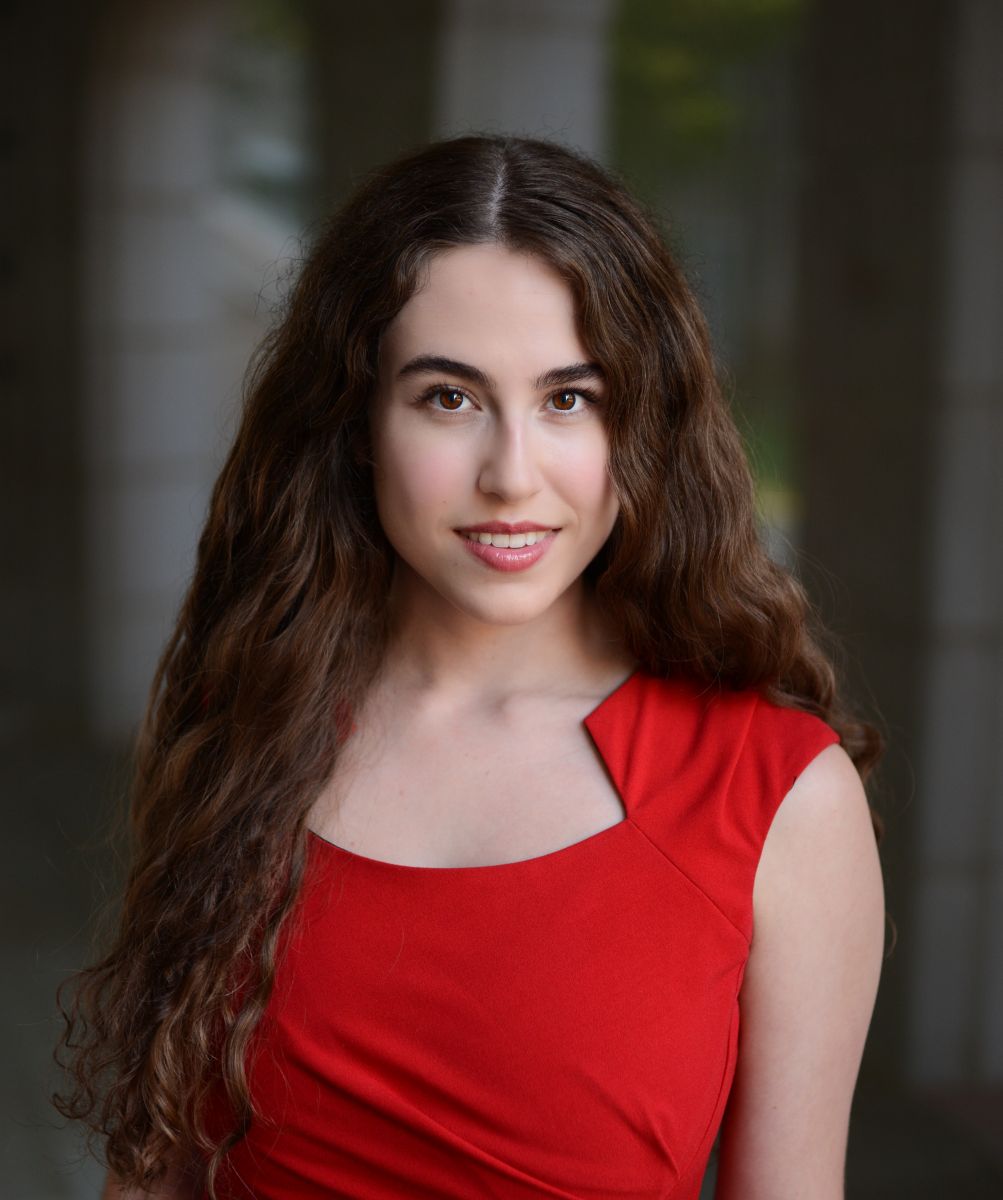
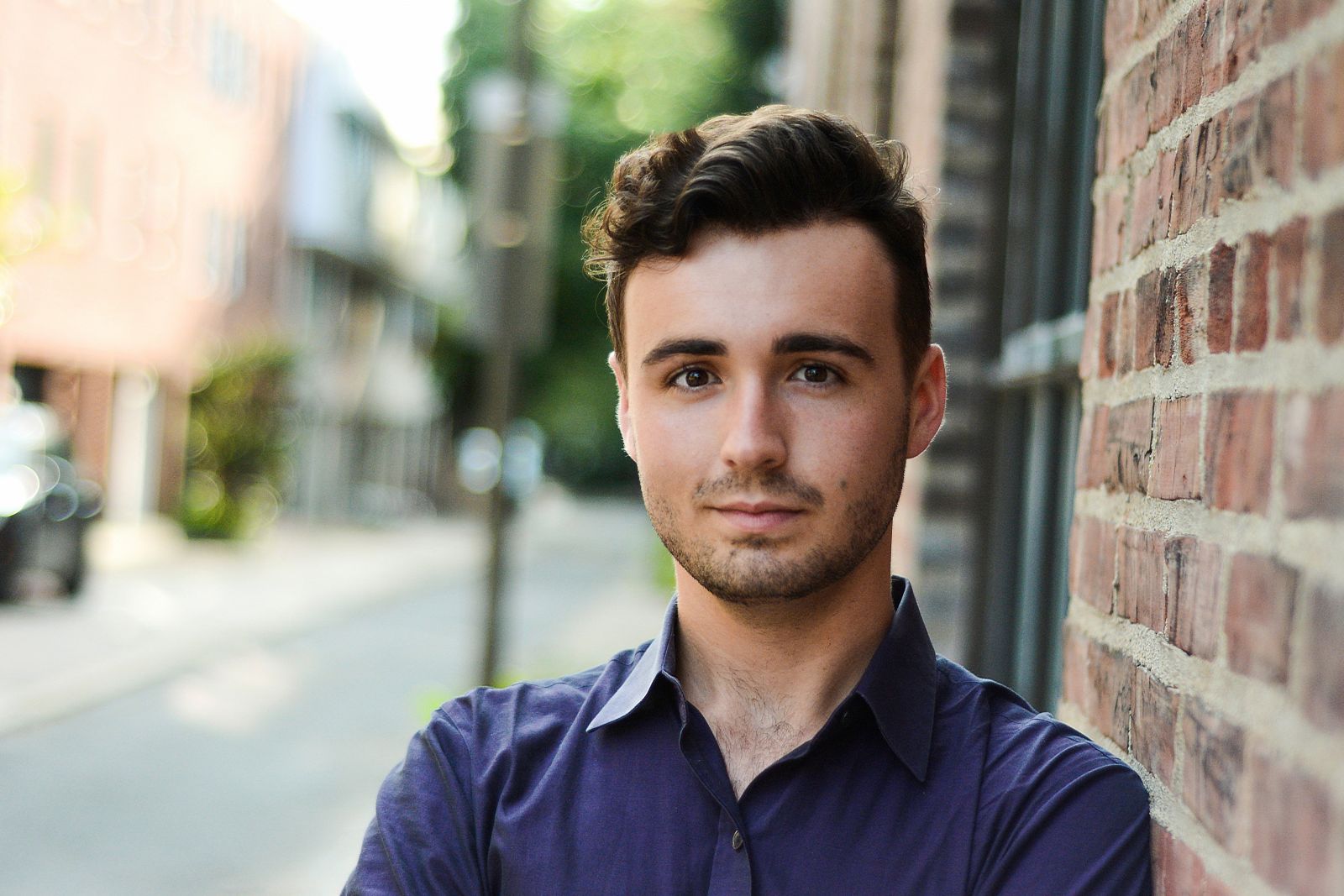 Matthew Payne (Skaneateles, NY), Papageno, baritone, is a second-year student in the Maryland Opera Studio. He is a graduate of Oberlin Conservatory and College, where he earned a bachelor's degree in voice performance and another in biology. Last summer, Payne was a young artist at Central City Opera, where he covered the role of Marullo and Count Monterone in Verdi’s Rigoletto. Payne’s most recent roles include, Aaron in Nailah Nombeko’s new work reading of Sunder with Annapolis Opera and Maryland Opera Studio, Billy Bigelow in Rodgers and Hammerstein’s Carousel with Skaneateles Summer Theater (2019) and Lackey in Romberg’s The Student Prince with the Chautauqua Institution (2018). Payne has also been a fellow at the prestigious Tanglewood Music Center, an artist at the Chautauqua Institute and a studio artist with Opera Neo. Payne is a student of Kevin Short.
Matthew Payne (Skaneateles, NY), Papageno, baritone, is a second-year student in the Maryland Opera Studio. He is a graduate of Oberlin Conservatory and College, where he earned a bachelor's degree in voice performance and another in biology. Last summer, Payne was a young artist at Central City Opera, where he covered the role of Marullo and Count Monterone in Verdi’s Rigoletto. Payne’s most recent roles include, Aaron in Nailah Nombeko’s new work reading of Sunder with Annapolis Opera and Maryland Opera Studio, Billy Bigelow in Rodgers and Hammerstein’s Carousel with Skaneateles Summer Theater (2019) and Lackey in Romberg’s The Student Prince with the Chautauqua Institution (2018). Payne has also been a fellow at the prestigious Tanglewood Music Center, an artist at the Chautauqua Institute and a studio artist with Opera Neo. Payne is a student of Kevin Short.
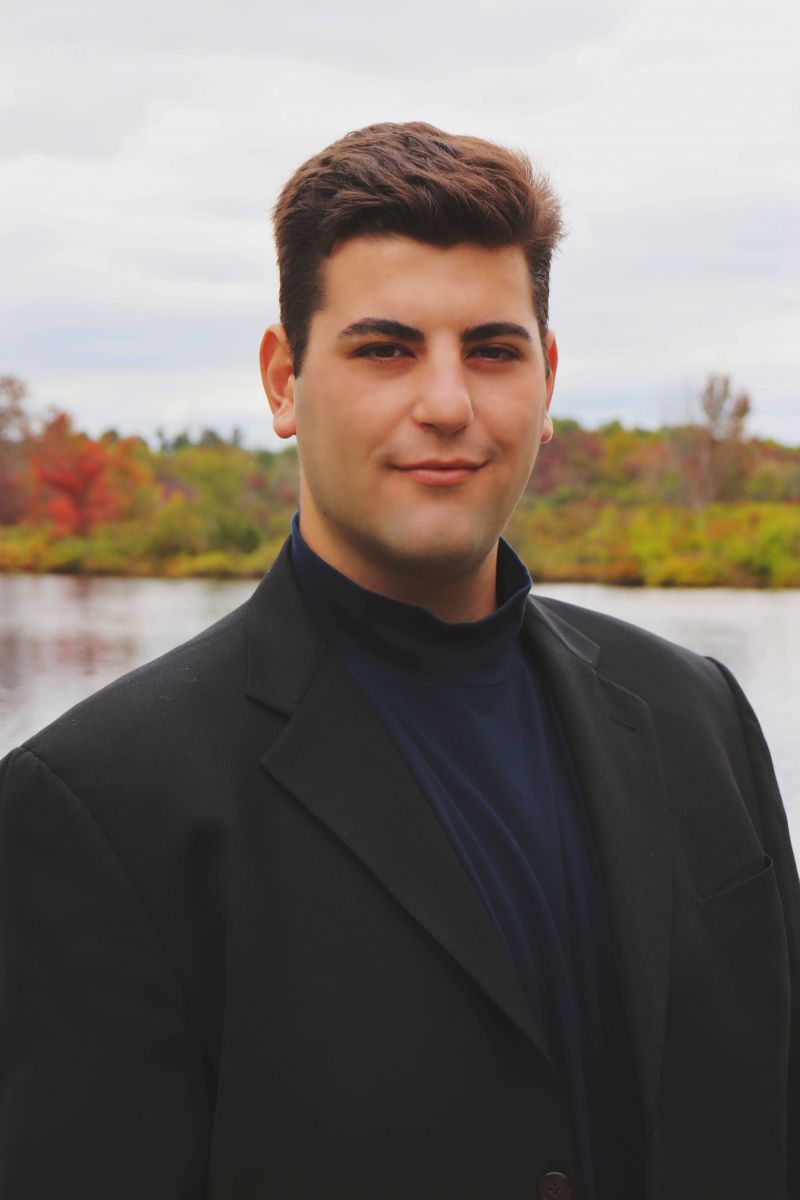 Craig Francis Smith (Rochester, NY), Second Armored Man/First Priest/Speaker, baritone, is a first-year student in the Maryland Opera Studio. Smith has performed with the Janiec Opera Company at The Brevard Music Center and the award-winning Crane Opera Ensemble. Recent credits include the title role in Gianni Schicchi, the title role in Le Nozze di Figaro, the Duke in Romeo et Juliette, Ivan in Die Fledermaus and The Superintendent in Tom Cipullo’s world premiere of Mayo. Smith has received a Bachelor of Music degree from the Crane School of Music at SUNY Potsdam, where he studied with Colleen Skull. Smith is a student of Kevin Short.
Craig Francis Smith (Rochester, NY), Second Armored Man/First Priest/Speaker, baritone, is a first-year student in the Maryland Opera Studio. Smith has performed with the Janiec Opera Company at The Brevard Music Center and the award-winning Crane Opera Ensemble. Recent credits include the title role in Gianni Schicchi, the title role in Le Nozze di Figaro, the Duke in Romeo et Juliette, Ivan in Die Fledermaus and The Superintendent in Tom Cipullo’s world premiere of Mayo. Smith has received a Bachelor of Music degree from the Crane School of Music at SUNY Potsdam, where he studied with Colleen Skull. Smith is a student of Kevin Short.
.jpg) Christina Kouni Smith (Phillipsburg, NJ), Lighting Designer, is a first-year M.F.A. candidate in lighting design at the School of Theatre, Dance, and Performance Studies. She received her Bachelor of Arts in theatre with a concentration in design and technology from the University of North Carolina (UNC) at Charlotte. There, she explored all theatrical disciplines while maintaining her pursuit of the lighting design craft. During her time at UNC Charlotte, Smith designed productions of Everybody, Little Shop of Horrors and more. As a first-generation Greek American, Smith finds themes of inclusivity crucial within the theater. Her research focuses heavily on the representation of women on stage and centers on empowering women.
Christina Kouni Smith (Phillipsburg, NJ), Lighting Designer, is a first-year M.F.A. candidate in lighting design at the School of Theatre, Dance, and Performance Studies. She received her Bachelor of Arts in theatre with a concentration in design and technology from the University of North Carolina (UNC) at Charlotte. There, she explored all theatrical disciplines while maintaining her pursuit of the lighting design craft. During her time at UNC Charlotte, Smith designed productions of Everybody, Little Shop of Horrors and more. As a first-generation Greek American, Smith finds themes of inclusivity crucial within the theater. Her research focuses heavily on the representation of women on stage and centers on empowering women.
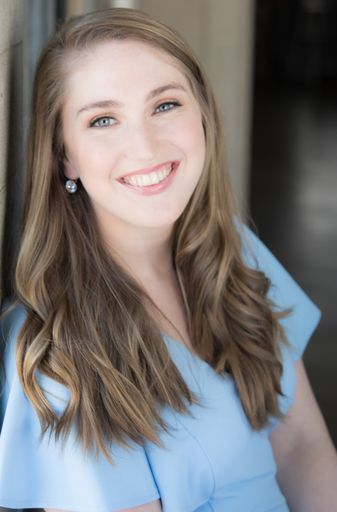 Rhiannon Vaughn (Pittsburgh, PA), First Lady, soprano, is in her second year in the Maryland Opera Studio. She is a graduate of both the New England Conservatory, where she earned a master’s degree in vocal performance, and the University of Rochester, where she earned bachelor’s degrees in both history and music. Most recently with the Maryland Opera Studio, Vaughn sang the role of Mrs. Julian in Benjamin Britten’s Owen Wingrave and scenes from Die Fledermaus, Eugene Onegin and Così fan tutte. She is a student of Jennifer Casey Cabot.
Rhiannon Vaughn (Pittsburgh, PA), First Lady, soprano, is in her second year in the Maryland Opera Studio. She is a graduate of both the New England Conservatory, where she earned a master’s degree in vocal performance, and the University of Rochester, where she earned bachelor’s degrees in both history and music. Most recently with the Maryland Opera Studio, Vaughn sang the role of Mrs. Julian in Benjamin Britten’s Owen Wingrave and scenes from Die Fledermaus, Eugene Onegin and Così fan tutte. She is a student of Jennifer Casey Cabot.
PRODUCTION CREDITS
Ashley Pollard
Erin Taylor
Erica Guo
Ryan Knapp
Jen Daszczyszak
Susan Chiang
Tessa Lew
Lisa Burgess
Lisa Burgess
Amy Vander Staay
Clare Lillig
Connor Locke
Michael Driggers
Sandy Everett
Reuven Goren
Ann Chismar
Timothy Jones
Vanessa Spring-Frank
Jeffrey Reckeweg
Carrie Barton
Devin Kinch
Cassandra Saulski
